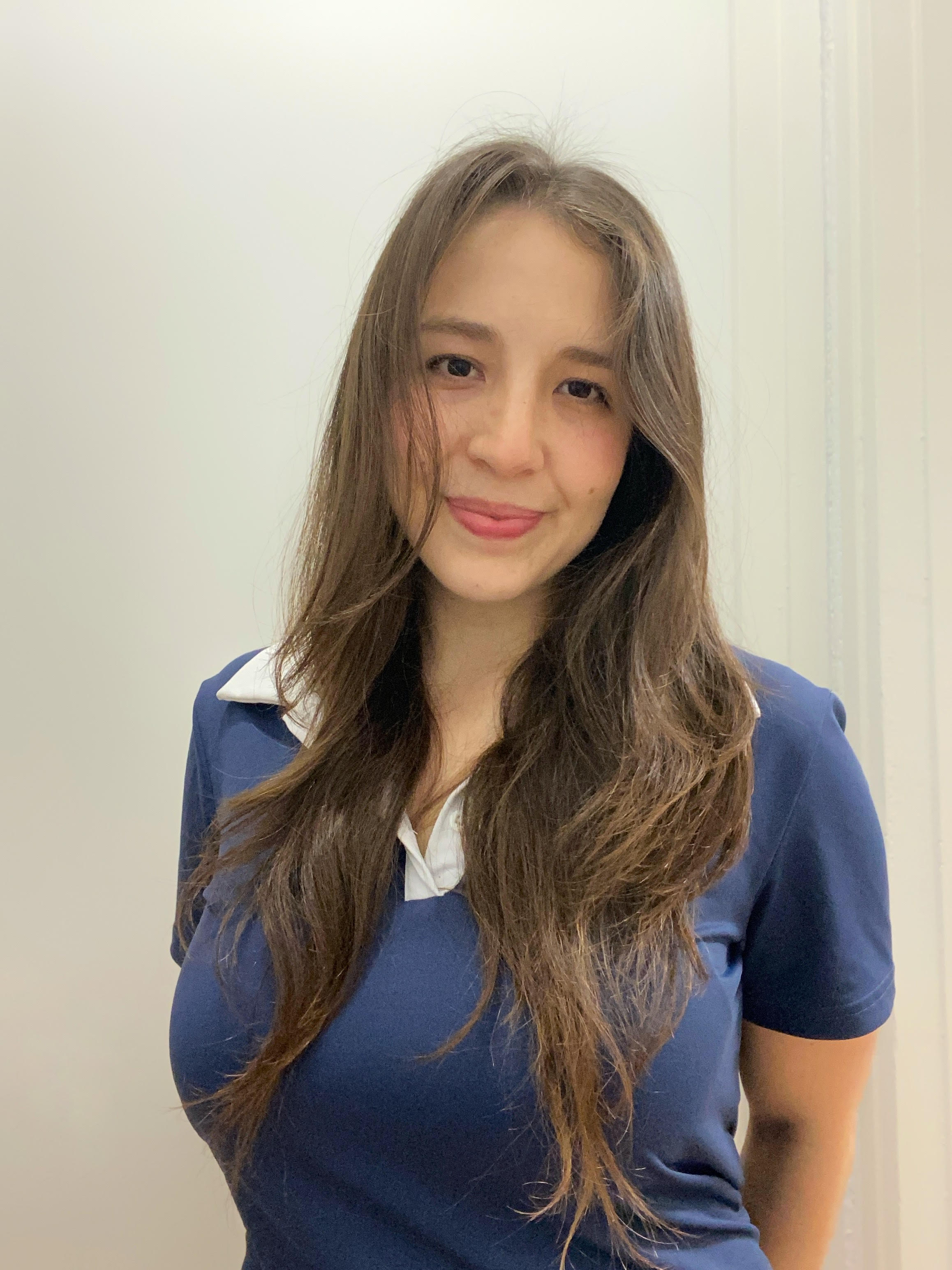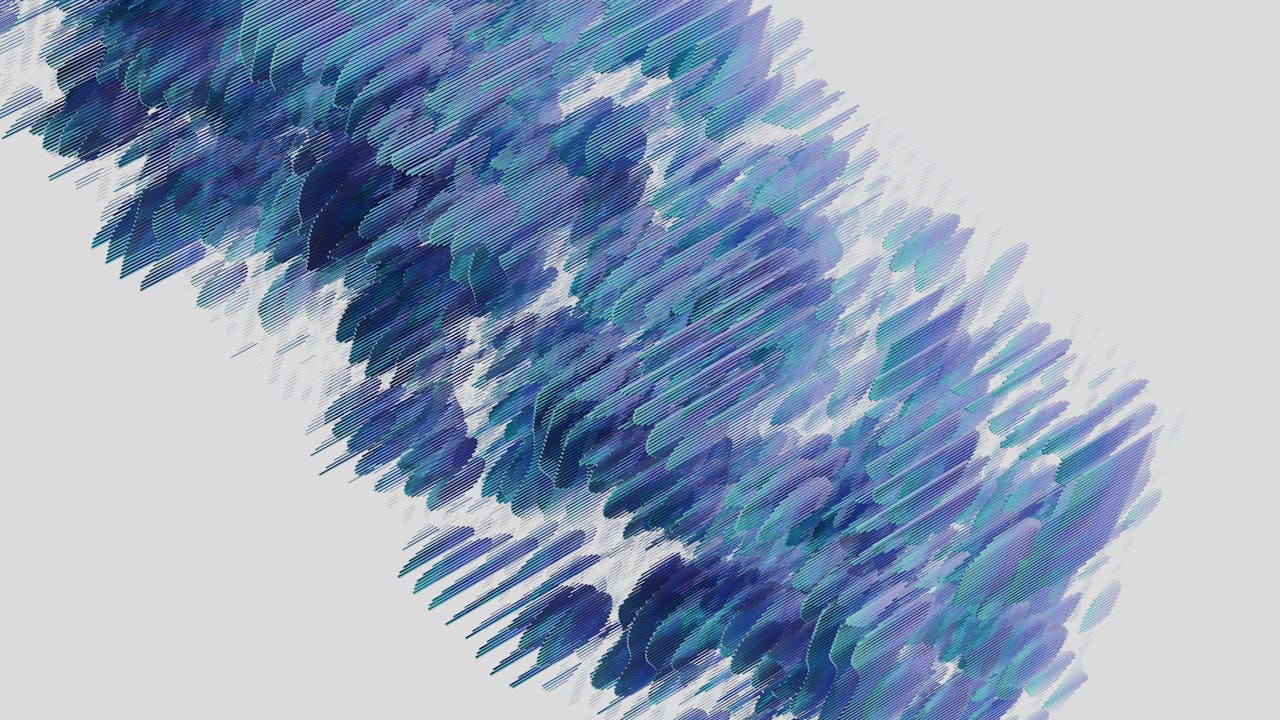When Sofía Perales explored waste-based materials as part of her design master’s, eggshells didn’t immediately captivate her. They felt “boring”— hardly the futuristic feedstock designers dream about. But a global pandemic and a myriad of experiments later, eggshells became her way into the complex, inspiring (and sometimes sobering) world of bio-based materials.
Today, Sofía splits her time between research in polymer processing—specializing in multifilament melt spinning extrusion, recycling processes and thermoforming parts, and mold development—and part-time lecturing on materials science. In between, she returns to her personal project, Egg Shield, where she works with eggshell waste to create sculptures, 3D-prints and tiles from a bone-like biocomposite bound with gelatin and water.
Encountering Materiom, Sofía set a quiet goal: get her recipe onto the platform so others could build on it.
“My main purpose was to share information… When someone asks for my recipe, I can send them to Materiom and say, ‘Please, experiment and improve it.’”
A designer who learned to speak “materials”
Sofía pursued not one but two master’s degrees—first in design, then in science and engineering—to close the gap between concept and characterization. Learning testing methods, material families, and structure–property relationships helped her interpret what she was seeing in the lab.
Although Sofía’s day job is deeply scientific, Egg Shield is intentionally artistic. She wants to craft physical pieces—armor for the torso, a mask—then exhibit them, not as products, but as provocations: proof that “waste” can become a culturally expressive, technically intriguing material.
“You can create art—and art inspires engineers, chemists, biologists. It’s one of the most important and influential sparks of change.”
Questions of impact and scale
With experience in both traditional and bio-based chemistry, Sofía is emphatic about evaluating materials across their entire life cycle: sourcing, processing, use, end-of-life, and—critically— their ability to scale.
“Sustainability is all about scalability. If your project is not scalable, maybe it’s not sustainable at all.”
Eggshells are abundant, but building reliable supply—without creating perverse incentives—requires logistics, economics, and infrastructure. At small scale, Sofía could gather shells from a sports and cultural centre. At larger scale, bakeries might help—but who pays to separate, store, and transport? These are not lab questions; they’re system questions.
She’s equally candid about trade-offs. Gelatin works well as a binder, but it raises sourcing concerns. Could the egg’s own proteins replace it? Maybe. Would additives speed commercialization? Probably—but at the cost of “most natural possible” decomposition. These are the kinds of tensions facing every bio-based materials developer — from first lab experiments to large-scale commercial scale-up.

Thoughts for new innovators
Sofía’s advice to other innovators is refreshingly grounded:
- Keep hope—but do the full math. Energy, water, logistics, and end-of-life all count.
- Start with what exists. “Every recipe is already created.” Learn from it, improve it, then innovate.
- Think regionally. In Spain, where tortillas (and eggs) are plentiful, eggshells make sense. In Mexico, corn reigns—so corn leaves might be the right fiber source. The point isn’t to crown a universal hero feedstock; it’s to align materials with place, culture, and existing waste streams.
She takes inspiration from the likes of industry pioneers Notpla, Materia Madura, Desserto and Mycoworks.
Why this story matters
At Materiom, we recognise that progress towards a new materials economy comes from many directions: a researcher mastering spinnerets, a designer conceptualising an exhibition, a startup testing scalable supply, a brand launching a new product line. Sofía’s work sits across this continuum, linking art to science, personal curiosity to professional ambition, and local experimentation to global knowledge exchange.
Learn more
To learn more about Sofia’s work, check out her Eggshell Biocomposite on the Materiom Commons and Matter Wise.
To join the Materiom Community, visit the Materiom Commons
Voices is a series of conversations with innovators shaping the future of sustainable materials. We share stories of designers, scientists, producers and brand pioneers who have used Materiom’s tools and data as catalysts for their work. Each feature highlights how open knowledge empowers innovation — from early experiments to spinout labs, new ideas to impactful enterprises, breakthrough materials to real-world products.




